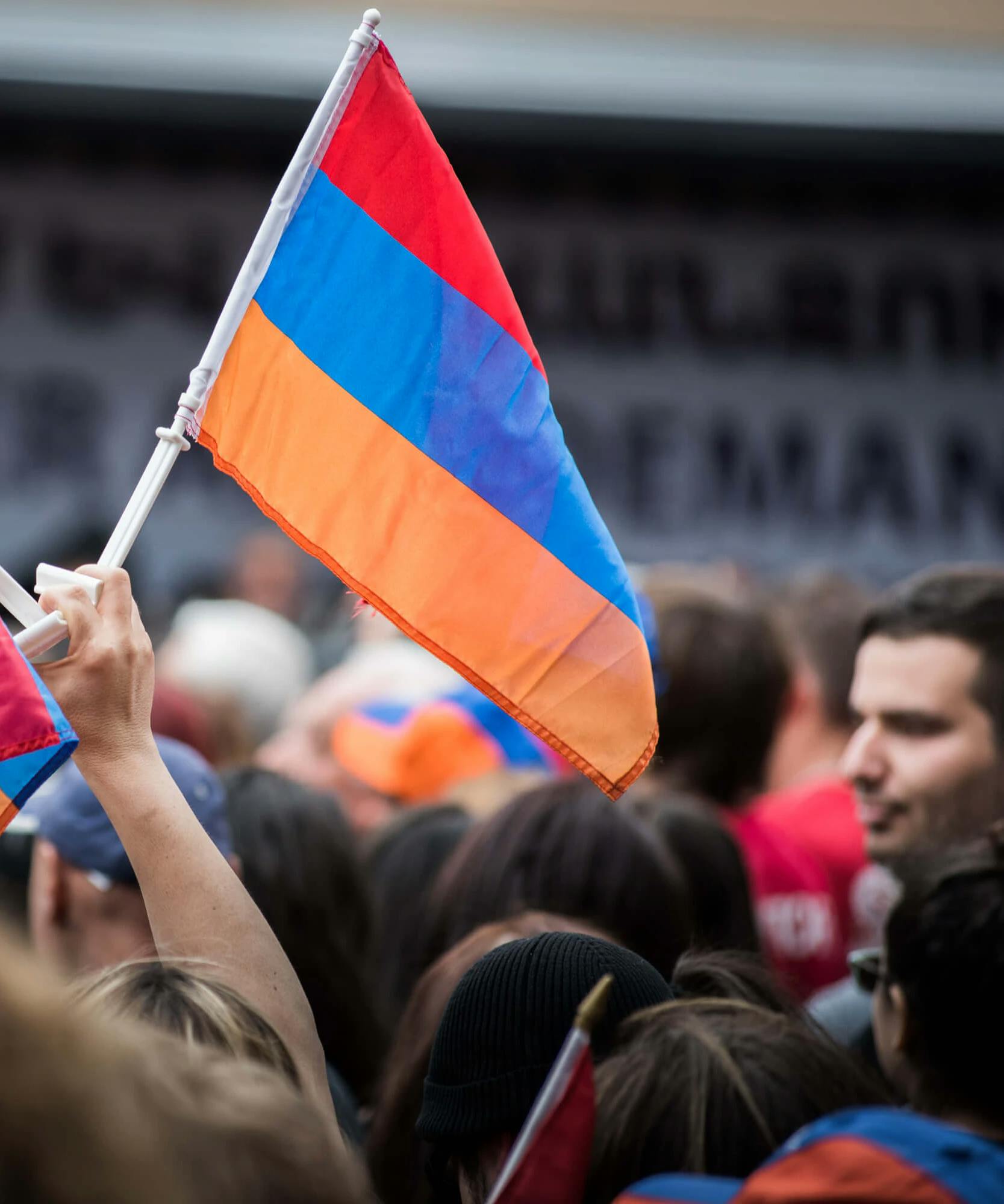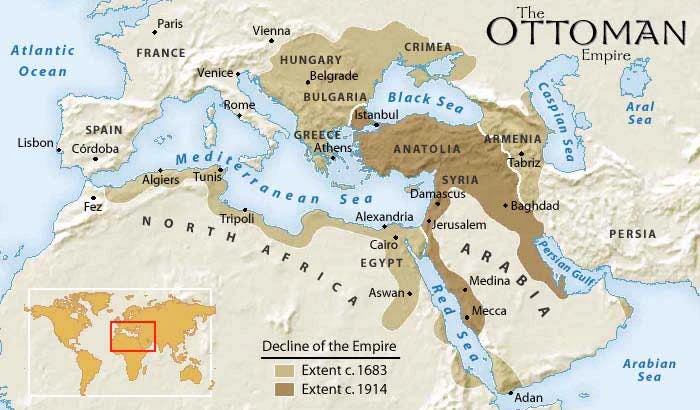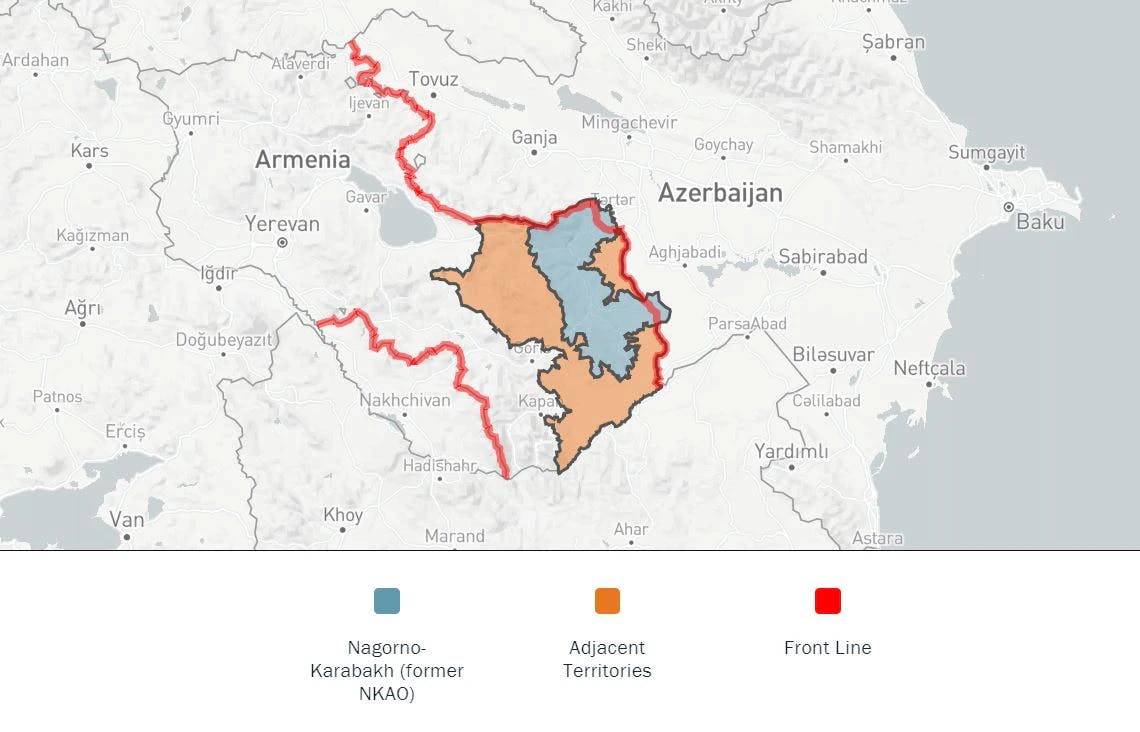Armenians Need Our Help. Here's What You Can Do
With the COVID-19 pandemic and upcoming presidential election, it’s hard for Americans to focus on anything happening outside our borders.

But this doesn’t change the fact that horrible injustices are happening outside our country. With the majority of American news media covering the election, the conflict between Armenia and Azerbaijan over Nagorno-Karabakh is being overlooked.
Thousands of Armenians and their supporters have taken to the streets in cities across the world to protest the violence.
Unlike the Holocaust, few Americans know about the horrific Armenian genocide that was perpetrated over a century ago. Sadly, the tensions and the conflict have never truly been resolved. Centuries-old tensions are again bubbling to the surface, and the worldwide media has largely turned a blind eye. Here's why Americans must know about what happened to the Armenians, so we can help prevent such tragedies in the future.
The History of the Armenian Genocide
The root of this conflict can be traced back to the Armenian Genocide of 1915. In 1915, the Ottoman Empire was mainly populated by Turkish Muslims. There were also plenty of minority ethnic and religious groups, including Armenian Christians. The Muslim majority considered religious minorities, especially the Armenian Christians, to be "infidels." Armenian Christians were persecuted by having to pay higher taxes and they had fewer rights.
Violence against Armenians in the Ottoman Empire was nothing new, but violence increased when the nationalistic Turkish Muslim group “Young Turks” overthrew the Sultan in 1908. They wanted to “Turkify” the empire, and all non-Muslims and non-Turks were marginalized even further.

Photo Credit: University of Illinois Library
During World War I (1914-1920), the Turks feared that the Armenians would side with their fellow Christian neighbors, the Russians (who were members of the Allied Powers while the Ottomans were in the Central Powers). The Turks saw this as the ultimate betrayal of their government and decided to exterminate the Armenians.
According to the New York Times, “Armenians mark the date April 24, 1915, when several hundred Armenian intellectuals were rounded up, arrested and later executed, as the start of the Armenian genocide, and it is generally said to have extended to 1917. However, there were also massacres of Armenians in 1894, 1895, 1896, 1909, and a reprise between 1920 and 1923.”
Historians estimate that around 1.5 million Armenians died during this genocide. Some of the extermination methods included mass killings, such as mass burnings and drownings, and a death march that forced Armenians to leave their homes and march towards the Syrian desert until they died of disease, hunger, or thirst.
The Ottoman Empire collapsed at the end of World War I. To this day, the Turkish government still denies the Armenian Genocide.
What’s Happening Now?
Today, Turkey and Armenia are separate countries, but due to the genocide, the majority of ethnic Armenians don't live in Armenia. Ethnic Armenians who live outside Armenia are referred to as the Armenian diaspora, with the majority of ethnic Armenians living in Russia and the United States.
The current conflict is over Nagorno-Karabakh (also known as Artsakh), a territory that is ethnically and historically Armenian, but located in Azerbaijan, which claimed its independence from the Soviet Union in 1991. The population of Azerbaijan is 96.9% Muslim, creating tension between the Azeri and the Armenian people.

Photo Credit: International Crisis Group
The Armenian people believe that they should peacefully live in the region, but violent clashes broke out in Nagorno-Karabakh in late September. Travis Fedschun of Fox News writes, “Air and artillery attacks between the two counties broke out around the separatist region of Nagorno-Karabakh...Both countries pointed fingers at each other, with Armenia claiming Azerbaijan carried out an attack while officials in Baku said they were responding to Armenian shelling.”
Armenia claims that Azerbaijan started the aggression, denied it, and has since spread misinformation. Armenia has a population of 3 million; Azerbaijan has a population of 10 million. To rub salt in the century-old wound for the Armenian people, Azerbaijan is allied with Turkey, which has a population of 84 million. Why would Armenia pick a fight against two allied countries that have more money, people, and resources?
The Armenian government takes this personally, as President Armen Sarkissian said, "This is a fight they will fight a long time, until the death as they say. Every Armenian in the world will support this fight for a simple reason. They see another attempt at genocide by Turkey using Azeri hands."
Azerbaijan denies that Turkey has a genocidal intent. Hikmat Hajiyev, Senior Foreign Policy Advisor to Azerbaijan's President Ilham Aliyev, says, "Turkish support to Azerbaijan is moral, diplomatic and political support, and we see the Armenian side tries to over-exaggerate it and put it in the context of a 3rd party involved. From the Azerbaijan side, we don't need any third party involvement."
Despite the debate over Turkey’s involvement in the conflict, the Armenian diaspora stands behind their people. Celebrities of Armenian descent have taken to social media to educate their followers about the issue.
Rob Kardashian, son of the late businessman and lawyer Robert Kardashian and brother to Kim Kardashian West, wrote on Instagram, “Please share now! Join me and @esrailian as we use our platforms to share truth! In the fog of the pandemic & global crises, #Armenians in #Artsakh have been the victims of unprovoked attacks by #Azerbaijan. We appeal to the international community to continue to condemn these attacks. From the highest levels of leadership, we know Armenia & Artsakh want peace. Anything else you read is disingenuous & false.”
Closing Thoughts
With the current news cycle, this horrific story has been swept under the rug by mainstream media and is relying on social media posts to demand justice. Everyone has the right to live peacefully in their own homes, and the Armenian people in Nagorno-Karabakh are being denied their basic human rights. If you’re able to, please donate to the Armenia fund or share this information with your local representatives.
If you would like to donate to the Armenia fund, click here. To share this information with your local and state representatives, click here.